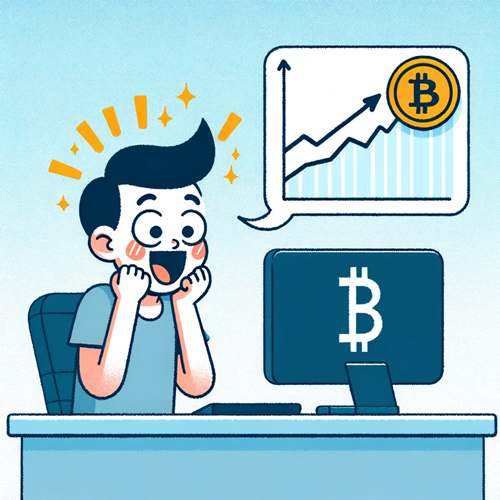Understanding FOMO meaning
FOMO, short for “fear of missing out” is when traders worry they might miss a chance to make money, especially in the fast-changing crypto market.
FOMO in crypto context
In the crypto world, FOMO is particularly intense. FOMO can be seen as the opposite of FUD. Traders often feel they’re missing out on the next big thing, leading them to make impulsive choices based on unverified information or social media speculation.
Psychology behind FOMO
FOMO happens when people are afraid of missing out on making money, especially when market prices are going up. This fear can make people anxious, too focused on market news, and quick to make decisions based on changing prices.
 An illustration of the FOMO
sentiment.
An illustration of the FOMO
sentiment.
Negative consequences of FOMO
FOMO can have serious drawbacks. It’s a tool in pump-and-dump schemes, where investors are misled into making poor choices. A notable example is the SQUID Coin scheme, fueled by social media hype and investor FOMO.
Dealing with FOMO in crypto
To combat FOMO, traders should keep a detailed trading journal, adhere to a solid trading plan, and have a clear risk management strategy. It’s crucial to research independently and not base decisions solely on social media buzz.
Examples of FOMO in crypto
Dogecoin’s price fluctuations, often influenced by Elon Musk’s tweets, illustrates FOMO in practice. Motivated by the fear of missing out, traders quickly respond to these high-profit opportunities.
Identifying causes of FOMO
Knowing why FOMO sentiment exists is important. It can come from wanting to be part of a big market change or not wanting to lose out, having lots of information, and being attracted to stories of people who succeeded early in investing.
Signs of FOMO
Signs of FOMO are often related to an urgent need to invest based on recent popularity or price jumps. To avoid FOMO, thorough research and reliance on trusted information sources are essential.